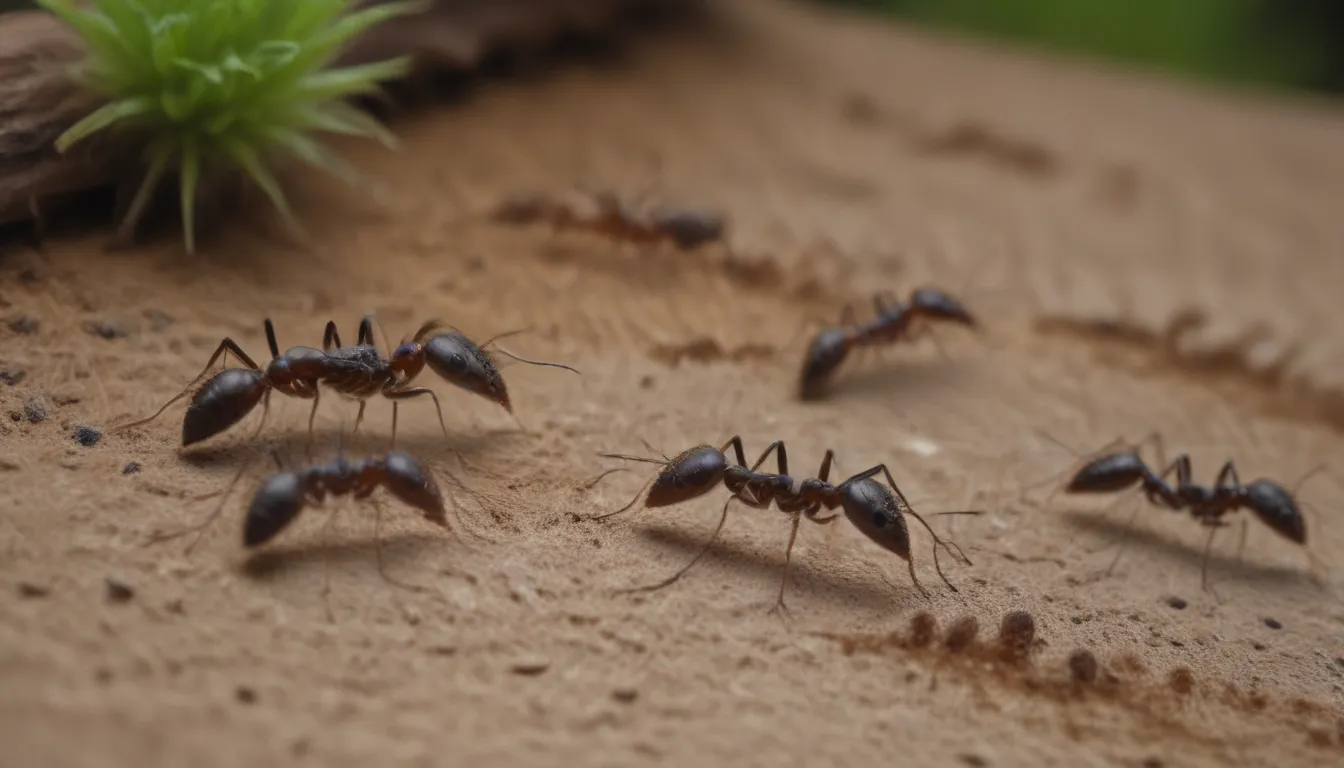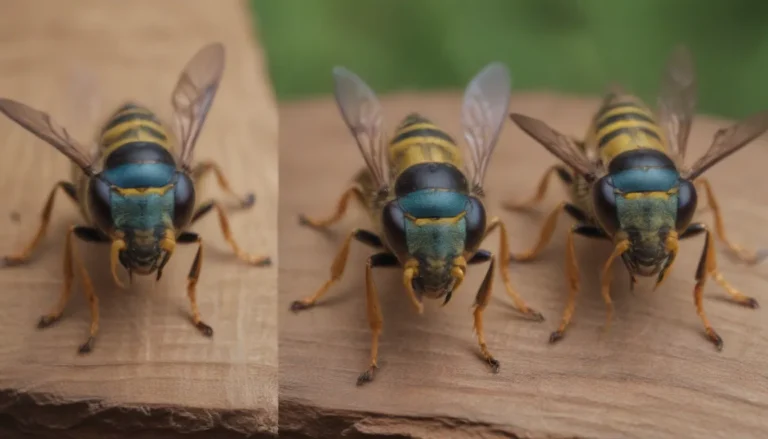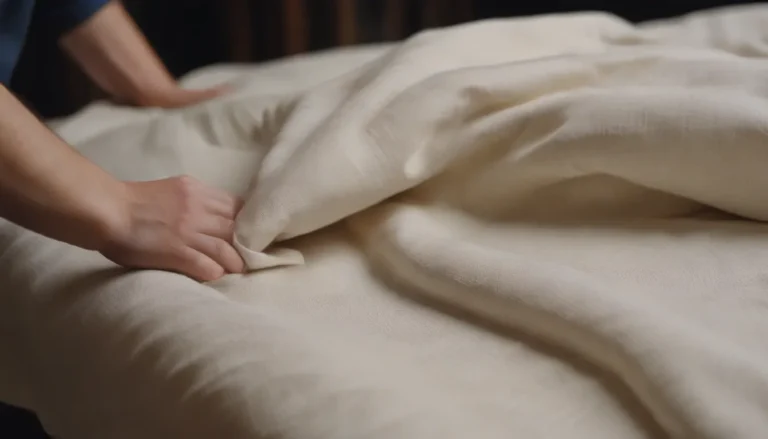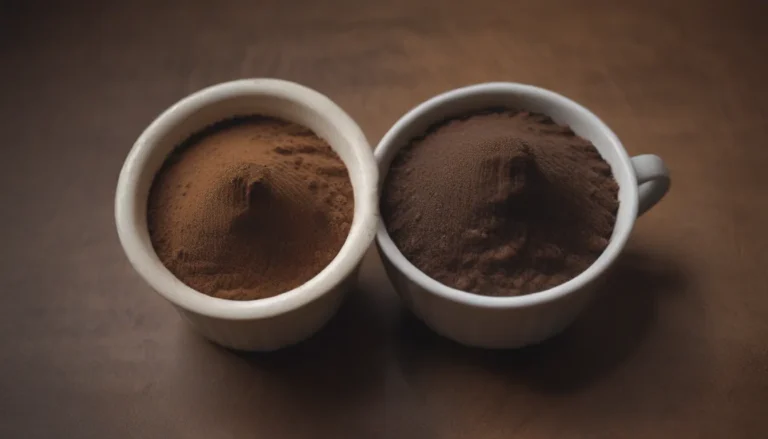The Ultimate Guide to Getting Rid of Ants Naturally

Have you ever found yourself dealing with a pesky ant infestation in your home or yard? Ants can quickly invade a space, making it challenging to get rid of them completely. But fear not, there are plenty of natural methods to help you eliminate those unwanted guests without the need for harsh chemicals or calling an exterminator.
In this comprehensive guide, we will explore 20 effective methods to get rid of ants naturally. From simple household ingredients to plant-based solutions, we’ve got you covered. So, grab a cup of coffee (or use those coffee grounds to repel ants!) and let’s dive into the world of natural ant control.
What Is the Fastest Way to Get Rid of Ants?
It’s only natural to want to get rid of ants quickly, and thankfully, there are several natural ant-repellent methods that can help you do just that. While there may not be a quick fix, these methods are highly effective and use ingredients that you may already have in your home.
Tip: Depending on the type of ant you’re dealing with, repellent products could make your problem worse. Sugar ants, for example, are prone to coming back. It’s crucial to find ways to prevent ants from being attracted to your home.
1. Brew Fresh Coffee Grounds
After you’ve enjoyed your morning cup of coffee, don’t toss those leftover coffee grounds just yet. Sprinkle them around the area where ants are invading to deter them from the scene. The strong smell of coffee repels ants and can force them out of the infested area.
Why this works: Ants hate the smell of coffee, making it an effective natural repellent to keep them at bay.
2. Vinegar or Essential Oil Based Cleaning Sprays
While vinegar and essential oils may not work as repellant products for large ant infestations, they can still play a role in an all-natural ant control plan. Use these cleaning sprays to wipe out the ants you see and eliminate the pheromone trails they leave behind.
Why this works: Cleaning sprays kill ants on contact and remove their scent trails, discouraging them from returning.
Warning: Vinegar may be too harsh for certain countertops. Be cautious when using it on natural stone surfaces.
3. Borax
Create an ant bait using borax mixed with a sweet or savory base that appeals to the ants. Place this mixture in areas where ants are likely to find it. Borax acts as a slow-acting poison that targets the entire ant colony, ultimately leading to its demise.
Why this works: Borax is toxic to ants and disrupts their communication, leading to the collapse of the colony.
4. Orange Peel
Repel ants by using citrus peels such as orange, lemon, or grapefruit. These peels contain a toxic oil called D-limonene that kills ants and masks their scent trails, preventing them from returning.
Why this works: Citrus peels repel ants and disrupt their communication, discouraging them from returning to the infested area.
5. Baby Powder
Sprinkle talcum powder at entry points where ants are entering your home. The strong scent of talcum powder deters ants and can also suffocate them when applied directly.
Why this works: Talcum powder acts as a natural ant repellent and suffocates ants upon contact.
6. Ground Cinnamon
Use ground cinnamon to deter ants from their original food source. Sprinkle cinnamon around the infested area to drive ants away without killing them.
Why this works: Cinnamon has a potent scent that repels ants and disrupts their trail, causing them to leave the area.
7. Cayenne Pepper
If you don’t have cinnamon on hand, try using cayenne pepper as a natural ant repellent. Sprinkle the powder around entry points or problem areas to confuse and repel ants.
Why this works: Cayenne pepper’s strong smell irritates ants, prompting them to leave the area and disrupts their communication.
8. Soap or Cleaner Spray
Create a natural ant repellent spray using dish soap or glass cleaner. Spray this mixture on ants or entry points to kill them on contact and deter others from returning.
Why this works: The chemicals in soap and glass cleaner kill ants instantly, providing quick relief from an ant infestation.
9. Diatomaceous Earth
Sprinkle diatomaceous earth in ant-infested areas to reduce ant activity. This powder dehydrates ants upon contact, leading to their demise over time.
Why this works: Diatomaceous earth absorbs moisture from ants, causing them to dehydrate and die.
Warning: Use food-grade diatomaceous earth to ensure safety around pets and children.
10. Use Boric Acid
Create a boric acid bait using equal parts boric acid powder, sweet foods, and water. Place this mixture near ant infestations to attract ants and kill them over time.
Why this works: Boric acid disrupts ants’ nervous and digestive systems, leading to their demise.
11. Cloves
Mix cloves with warm water to create a spray and apply it to infested areas. The strong smell of cloves repels ants and keeps them away from the food source.
Why this works: Cloves have a potent scent that deters ants and disrupts their communication, preventing them from returning to the area.
12. Baking Soda and Powdered Sugar
Create a bait using baking soda and powdered sugar to attract and kill ants. The acid in baking soda settles in the ants’ systems, leading to their demise.
Why this works: Powdered sugar attracts ants, while baking soda kills them upon ingestion.
13. Boil Some Water
Boiling water is an instant ant-repellent that can eradicate a whole colony. Pour boiling water over the ant colony to kill ants and prevent them from returning.
Why this works: The extreme heat from boiling water kills ants on contact and destroys their nest.
14. Draw a Chalk Line
Utilize chalk to draw a line around ant-infested areas. Chalk contains calcium carbonate, which confuses ants’ scent trails and prevents them from entering your home.
Why this works: Chalk disrupts ants’ communication and deters them from entering the area.
15. Clean Up Food Messes
Remove potential food sources such as crumbs and food residue to eliminate an ant buffet in your home. By keeping your space clean, you can discourage ants from infesting your home.
Why this works: Ants rely on food sources to survive. By removing these sources, you make your home less attractive to them.
16. Seal Entry Points
Identify and seal entry points where ants are entering your home to prevent further infestation. By blocking access points, you can limit ants’ ability to find food inside.
Why this works: Preventing ants from entering your home reduces their chances of establishing a colony inside.
17. Landscape Around Your Home
Keep plants well-trimmed and clear of the house to prevent ants from using them as entry points. By maintaining a clean perimeter around your home, you can deter ants from coming inside.
Why this works: Plants and tree limbs can serve as pathways for ants to enter your home. Clearing these areas reduces the risk of infestation.
18. Keep Pet Food Away
Store pet food properly and clean up any spills to prevent ants from being attracted to it. By keeping pet food out of reach, you can avoid creating a food source for ants.
Why this works: Pet food is a common attractant for ants. By storing it properly, you can minimize the risk of ant infestations.
19. Address Moisture Issues
Repair leaks and moisture damage promptly to prevent ants from nesting in moisture-damaged wood. By maintaining a dry environment, you can avoid creating ideal conditions for ants to thrive.
Why this works: Moisture-damaged wood attracts ants seeking nesting sites. By addressing leaks, you can discourage ants from infesting your home.
20. Treat Infested Houseplants
Monitor indoor plants for signs of ant infestations and treat them promptly to prevent ants from spreading. Garlic spray can effectively repel ants and protect your plants from damage.
Why this works: Ants are attracted to sweet smells produced by indoor plants. By treating plants with garlic spray, you can deter ants and keep your plants healthy.
What If These Methods Don’t Work?
While natural ant repellents can be effective, they may not always provide a permanent solution, especially for large infestations. If you’ve tried multiple methods and are still struggling with ants, you may need to consider other measures such as using pesticides or calling an exterminator.
Your local hardware store offers various pesticides for DIY use, but be cautious when using these potent solutions. Always wear safety gear, keep the area ventilated, and store pesticides out of reach of children and pets to prevent accidents.
In conclusion, eliminating ants naturally can be a challenging but rewarding task. By using these effective methods and taking preventive measures, you can keep your home ant-free and create a safe environment for you and your family.
Remember, persistence and consistency are key when dealing with ant infestations. By incorporating natural solutions into your pest control routine, you can maintain a healthy, pest-free home for years to come.
So, arm yourself with these natural ant-repellent methods and say goodbye to those unwanted visitors once and for all!





